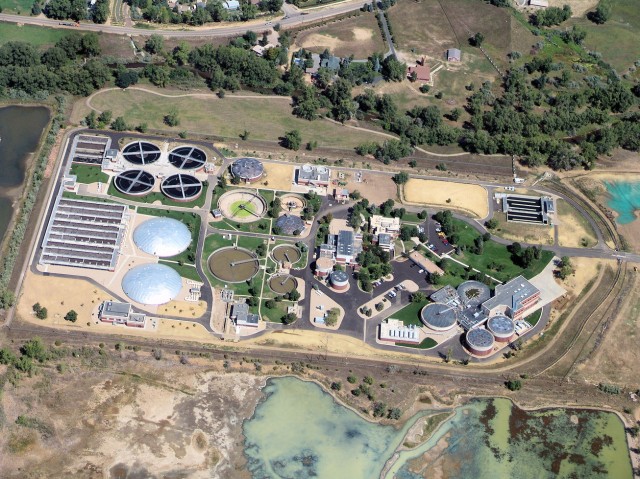
Wastewater treatment plants, like this one in Boulder Colorado, could become a energy neutral, or a source of valuable chemicals.
This week's edition of Science contained over a dozen articles on a subject that sounds deceptively simple: waste. Human societies produce a dizzying variety of waste purely as a byproduct of functioning, from agricultural waste or discarded electronics to excrement. In a world of finite resources and limited fossil fuels, it's obvious that we have to make better use of our waste. But doing so isn't just a challenge; it's dozens of them.
Organic waste
Take agricultural waste. The edible portions of most plants are generally accompanied by huge amounts of inedible material, primarily in the form of cellulose (a long string of sugars) and lignin (a chemical that links them together). Right now, if this is used at all, it's burned directly as fuel or used for feed. And, right now, efforts directed towards getting more out of it are focused largely on using it for fuel.
But one of the reviews notes that, assuming we can, diverting waste to biofuels may not make economic sense. The glycerol in biological material can be readily converted to fuel, but transforming it to epichlorohydrin produces a product that's three times more valuable (and 10 times more valuable than burning it to generate electricity). And that's a niche chemical. Ethylene and propylene are two of the major industrial chemicals made from fossil fuels; switching to bioethanol as the raw material to make these would currently require about 30 percent of all the land allocated to farming. (Although that could be sharply reduced if we could efficiently produce bioethanol from agricultural waste).
Read 12 remaining paragraphs | Comments
DIGITAL JUICE
No comments:
Post a Comment
Thank's!